Good morning, electorate.
We are on good speaking terms
but do not speak, which means
we must be self-reliant,
there are many matters at hand.
We’re not close enough to know each other’s
good news, bad news, private matters.
There are silent streets off public gardens
for intimacy and come-what-mays.
There is library silence and deadly silence
that is a private matter.
There is happiness written in white
and silent writings, meters overheard.
Silent are the voices I no longer hear —
after the first word spoken I’d recognize who’s there.
There is a playwright’s staging called “business,”
silent instructions without dialogue,
and the silence that says, “none of your business,”
but I have an office, a religion, that holds me responsible
for everything.
I hardly lift a finger to stop the slaughtering.
It’s a little like putting a nickel or a dime
in a cup and writing this against death,
raking leaves against the changing seasons.
My memory is like the first sound picture,
The Jazz Singer. I am screening:
it must have been October, 1927,
I remember skipping along Liberty Avenue,
before I learned to dance, I sang,
“Hoover in the ashcan, Smith in the White house.”
Later in Catalonia I danced the Sardana —
with its opening and closing circles
that made free and equal the young and old,
while the soulful tenora, a revolutionary woodwind,
played the dance forbidden by Generalissimo Franco.
Further back again toward first silences —
alone in the Charleville of my den,
I smoked Rimbaud’s clay pipe,
I thought “I will never die.”
I’m simply telling the impossible truth
that made my later studies more difficult.
When I first shaved my fake oxtail beard
invented by Cervantes, I fought back
day-reasoning without understanding
such dreams were my squire.
I returned with Sancho to Granada,
my forefathers’ home, my forbearers’ caves,
banderillas in the bull’s neck of my mind.
When I was young and difficult,
Lorca’s photo near my bed,
I saw Twelfth Night, sang Mozart arias,
read history textbooks my father wrote.
Loyalist, I shot fascists, not Iroquois.
I found an old photo of Belmonte, the matador
born with deformed legs — he stood so close to the bull
the beast had to charge around him. His sword
in a cape of silence, he stood erect, motionless,
a gypsy in a suit of lights tailored by Goya.
Interval.... Intermission....
I visited a zoo of languages
on the soon-to-be-sunk Statendam,
in February touring the Mediterranean
with my parents, from the pillars of Hercules
to the Bosphorus. In Barcelona, I sided
with the brave bull who entered the ring deceived,
never having seen a man off a horse,
the bull, however noble, sure of death.
•
I want my work to have the “taste of self”:
In the bright, silent mornings of my soul,
I refuse my royalties:
a bull’s ears, tail, and severed foot.
god does not ride a horse,
Jesus preferred donkeys.
I feed my donkeys carrots, play them operas.
A trio, they bray with joy.
Because it’s common sense I make noise for the Lord.
He wants our kind to read, sing, speak
to each other, to rejoice and play to beat the band,
horns, drums, bawdy noisemakers.
We should give Him the time of day,
among sounds, unhearable, bang away,
weep with the uncountable suffering others.
Among the multitudes, in the swarms,
the schools, the hives, rejoice, boo, snore,
make noise for the love of noise and questioning,
praise Him on Doomsday,
He hears the noise of all the world’s blinking eyes.
I believe to live as a silent flower is worthwhile.
I cannot speak the languages of trees
better than birds, who out of gratitude
and affection learn arboreal grammar,
accents, pronunciation, whatever the weather,
but I try because I love a good oak —
still, I cannot better the birds ...
“Affection” for my neighbor is easy, “love” difficult.
Silence can be affection, silence a perfect herald.
Still there is speechless love and silent conversations
called gestures, helping hands, sometimes
only a loving telephone call.
There are equators, latitudes, and longitudes
of silence, useful compasses,
lighthouses, red and green buoys, red light
to port, green starboard, silent foghorns.
I remember silent remembrances.
Is partial light the opposite of silence?
The sun is noisy, gossips earthly languages.
Shhh. Trying to find truth.
I’ve heard late-night laughter in Roman streets,
screeching pigs carried upside down to slaughter.
From time to time the living whisper, scream,
“Help me! murder!” Roots tremble.
I never heard the noise and silence of mass murder.
In Asia and Africa, there are english wildfires.
Greek and Latin are still smoldering,
flaming African syllables on every tongue.
Love, silence, reflection, and revelation
in the jungle and pine-barren ashes.
I lift my head to music I call gods,
whole notes, scales, clefs, and rests
that are saints, mullahs, rabbis, atheists, pagans.
So I will ask to collect my dead and wounded
and you will never hear from me,
the unheralded herald, anymore.

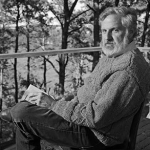




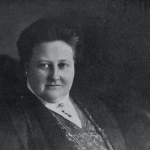
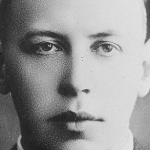

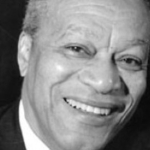

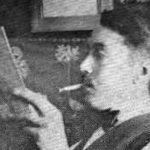


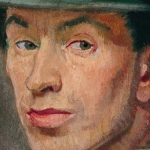
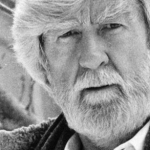
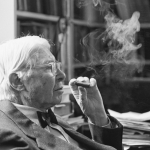

Comment form: